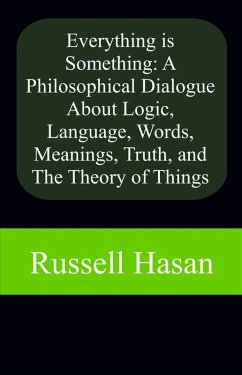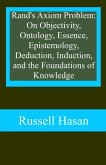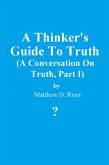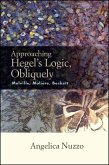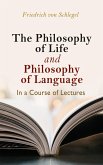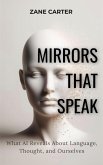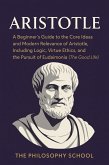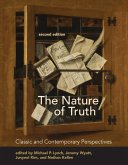This short philosophical dialogue is written in the style of Plato but with substance that is closer to Aristotle. It is written in a way that is simple, engaging, and easy to understand, while at the same time tackling and grappling head on with some of the most complicated, difficult questions and issues ever posed in the history of philosophy. What is a thing? What is logic? Why is logic capable of proof? What is language? What are words? What is the meaning of a statement? How does language work? What is truth? What do we mean when we say that a statement is true? This essay is a synthesis of Analytic philosophy and Objectivist philosophy and will be of interest to anyone who has read, for example, Bertrand Russell, Kurt Gödel, Ludwig Wittgenstein, or Ayn Rand. It is the author's position that the scope of logic is infinite and that logic has no limits, and that language is a system where statements in a language correspond to objects in reality, such that a statement is true if the object to which it refers exists, and a statement is false if its object does not exist. The essay will solve, and refute, various arguments that are famous in the philosophy of logic and which purport to place limits upon the scope of logic, such as Russell's Paradox, Gödel's theorems on the incompleteness of logic, and Wittgenstein's theory of the philosophy of language as merely a series of moves in a language-game. This book is worth reading if only to see whether the author is capable of pulling off such a grand accomplishment, which would be a significant achievement in Analytic philosophy, if successful.
Dieser Download kann aus rechtlichen Gründen nur mit Rechnungsadresse in A, B, CY, CZ, D, DK, EW, E, FIN, F, GR, H, IRL, I, LT, L, LR, M, NL, PL, P, R, S, SLO, SK ausgeliefert werden.

